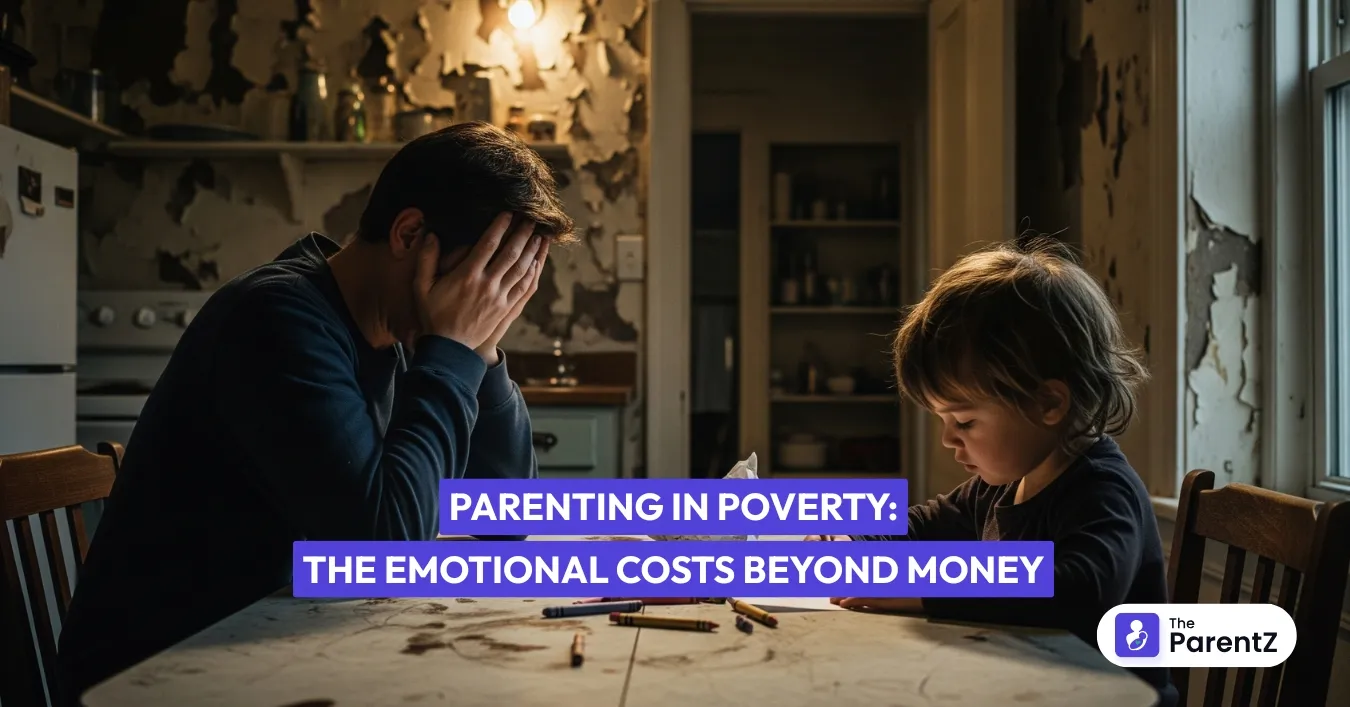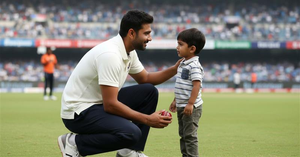When people talk about poverty, they usually talk about money. How much comes in, how much goes out, what’s left for bills, rent, food, and school. But you know the truth, it’s never just about money. It’s about the heavy emotional load you carry every single day.
It’s the stress that sits on your shoulders, the guilt every time you have to say no, the shame of feeling “less than,” and that nagging whisper in your head, “Am I failing my kids?”
If you’ve ever sat at the kitchen table late at night, staring at the bills while your children sleep in the next room, you know exactly what we are talking about. This is not just about numbers. This is about love, heartbreak, and the quiet sacrifices you make every day.
The Invisible Weight You Carry
When you’re raising kids in poverty, almost every choice feels impossible. Do you pay the electricity bill or buy the new shoes your child needs? Do you say yes to the school trip when you know it means being short on groceries?
And then comes the worst part, the look on your child’s face when you have to say no. That guilt feels endless. You love your kids more than anything, but poverty makes you feel like no matter how much love you give, it’s never enough. That’s the cruelest part of it all.
The Silent Emotions That Hit You Hard
The Stress That Never Lets Go
Even when things are calm for a moment, you’re always waiting for the next problem, a broken appliance, a medical bill, a school expense you weren’t ready for. That constant edge takes so much out of you, like your energy, your sleep, your peace.
The Shame of Comparison
You see other parents posting pictures of big birthday parties, vacations, and new gadgets, and you wonder if your kids notice the difference. It’s not just about the money you don’t have; it’s about the moments and opportunities your kids are missing. That shame can eat away at you, even when you know you’re doing everything you can.
The Self-Doubt You Can’t Shake
Poverty has a cruel way of making you feel like you’re not a good parent, even though you’re giving everything you possibly can. You may doubt yourself, question your choices, and feel like you’re falling short, when in truth, you’re holding more on your shoulders than anyone should ever have to.
What Your Kids Feel (Even If They Don’t Say It)
You probably try your best to hide the stress, but your kids notice more than you think. They sense the tension, the mood, the moments you go quiet. And sometimes, they even carry the weight too.
- They may start worrying about money at an age when they should just be playing.
- They may feel guilty for asking for things, even basic things.
- Some might grow up thinking that joy or success is only for “other people.”
That doesn’t happen because you don’t love them. It happens because poverty is a shadow that touches everyone in the home.
How Poverty Shapes the Way You Parent
Living in poverty sometimes changes the way you raise your kids, even when you don’t mean to.
- You may be stricter because you can’t afford mistakes. You need structure and discipline to survive.
- You may have less patience on some days, not because you don’t care, but because stress eats so much of your energy.
- Or you may overcompensate, stretching yourself thin to give your kids something small, then paying for it emotionally and financially later.
It’s not because you’re failing. It’s because poverty demands more from you than any parent should have to give. And you’re still here, still showing up for your kids. That matters.
The Everyday Moments No One Sees
Think about the times you:
- Gave up your own meal so your kids could have more.
- Went without something you needed so they could have even a small treat.
- Smiled through the disappointment of saying “maybe next time,” so they wouldn’t see your heart breaking.
These are the quiet sacrifices that nobody claps for, nobody posts about, but they matter more than you know.
What You Can Hold On To
The emotional weight of poverty often feels endless, but you are not powerless.
- Redefine Enough: Your kids need you (your time, your hugs, your encouragement) far more than they need expensive things. Love really is their anchor.
- Talk to Them Honestly: Kids sense stress, and silence can make it feel scarier. Give them age-appropriate truths, as they don’t need every detail, just reassurance and honesty.
- Create Small Joys: A homemade cake, a walk in the park, laughter at a silly movie, these are the memories that stick, not the expensive outings.
- Stop Comparing: Social media is a highlight reel. Your kids don’t need “insta-perfect.” They need real love, the kind only you can give them.
- Lean on Support: Whether it’s community groups, schools, or even friends who understand, remind yourself that you don’t have to carry this weight in silence.
Conclusion
Parenting in poverty is not just about stretching rupees; it’s about carrying an emotional load that feels invisible to the world. It’s about loving your kids so deeply that it hurts when you can’t give them everything you want to.
But your poverty can never erase your love, your sacrifices, your presence, as those are the things your children will remember the longest.
You may not see it now, but those small moments, the hugs, the laughter, the nights you stayed strong when you wanted to fall apart, are shaping them in ways money can’t touch.
Yes, poverty leaves scars. But it also leaves behind something else: children who grow up knowing what resilience, love, and sacrifice look like every single day.









Be the first one to comment on this story.